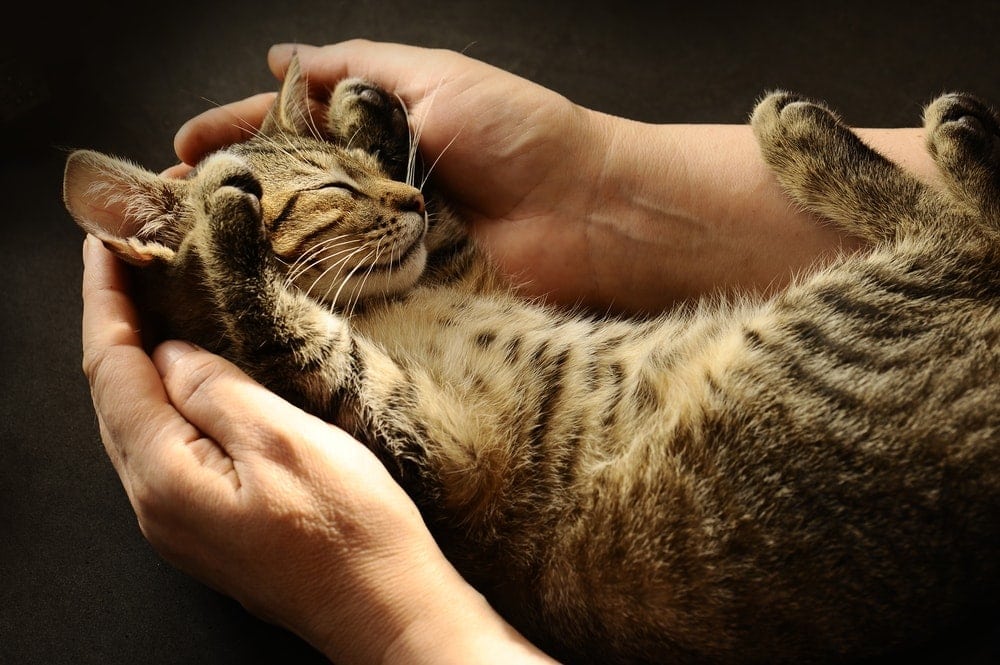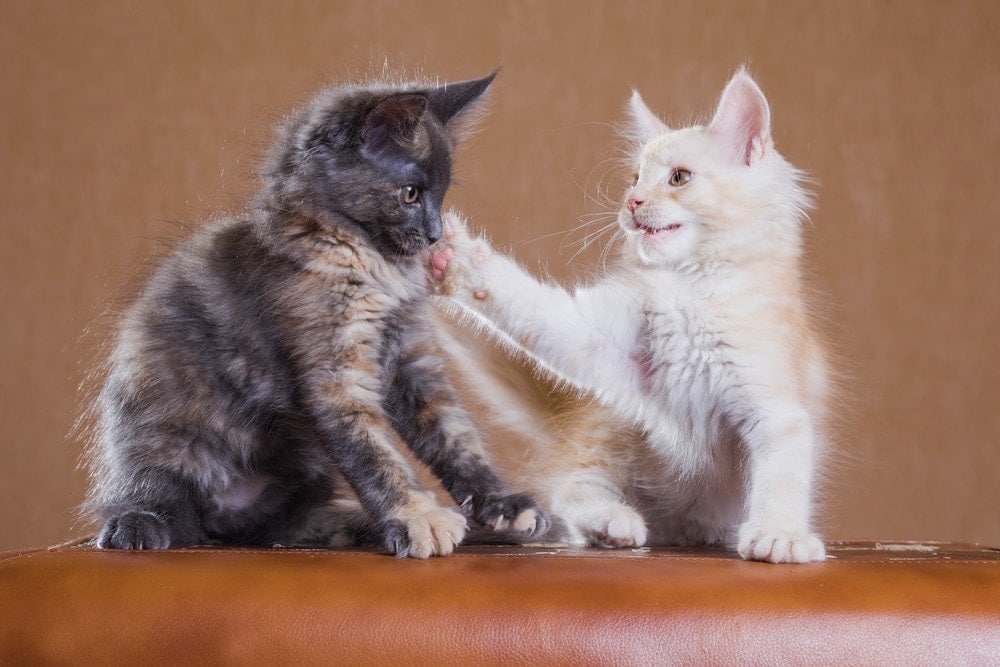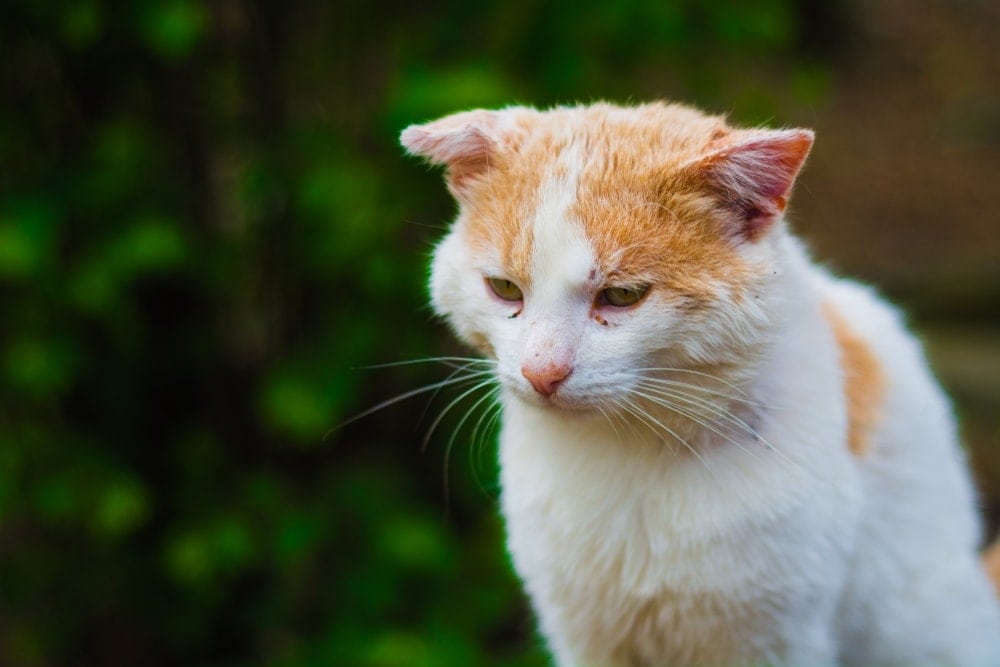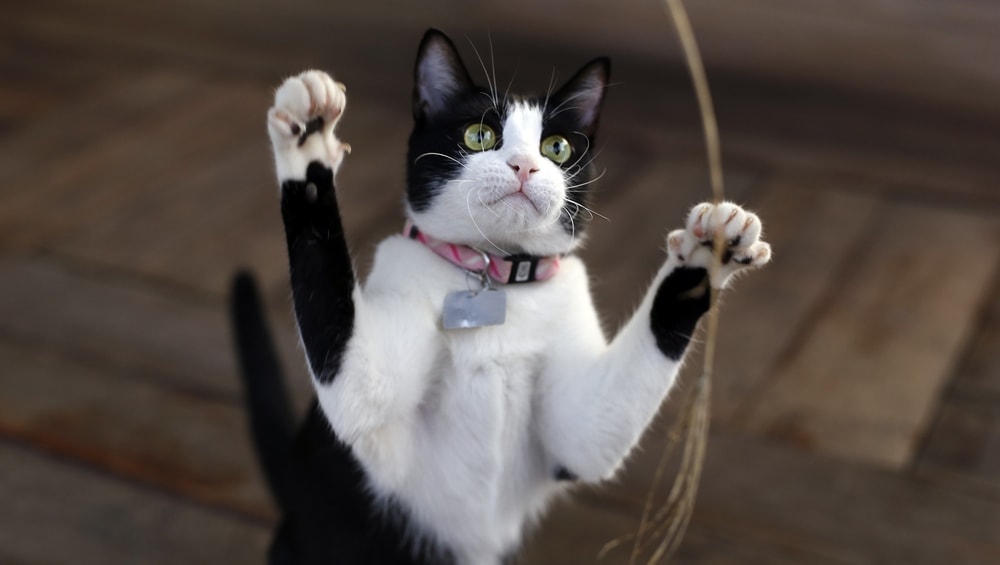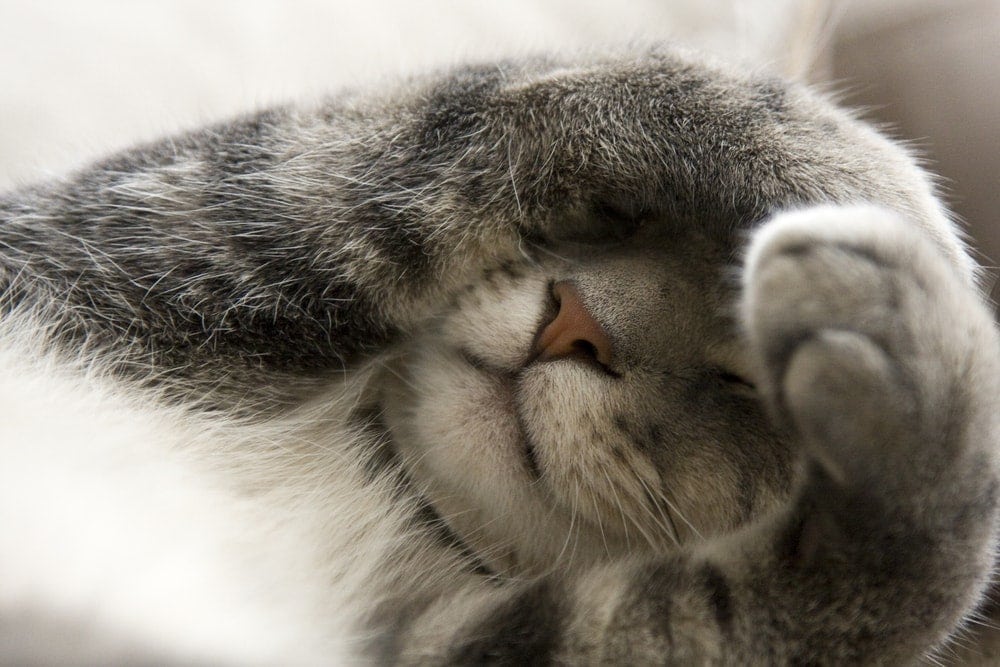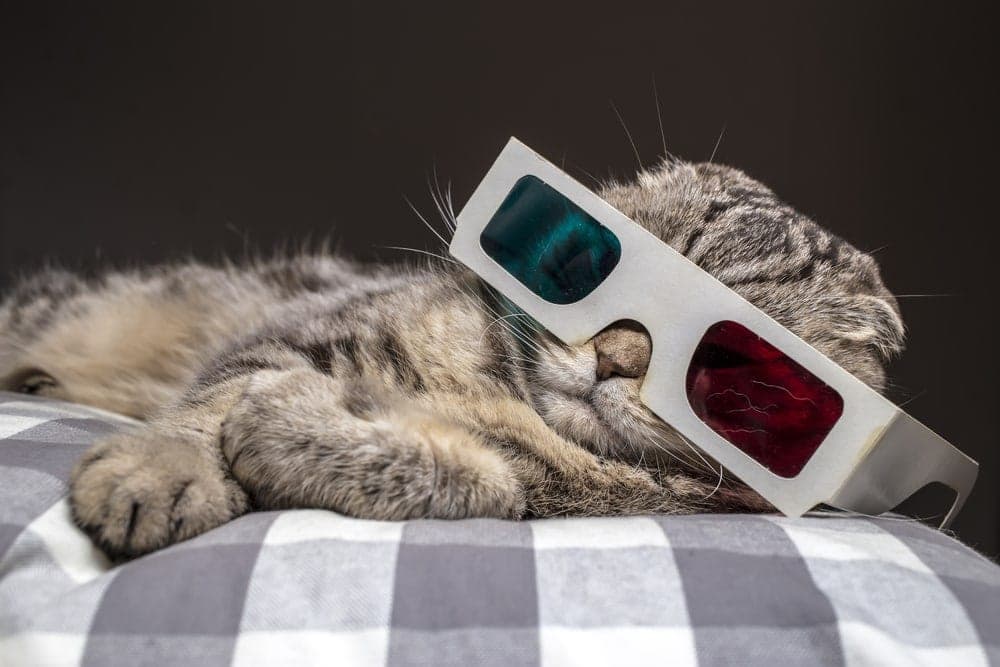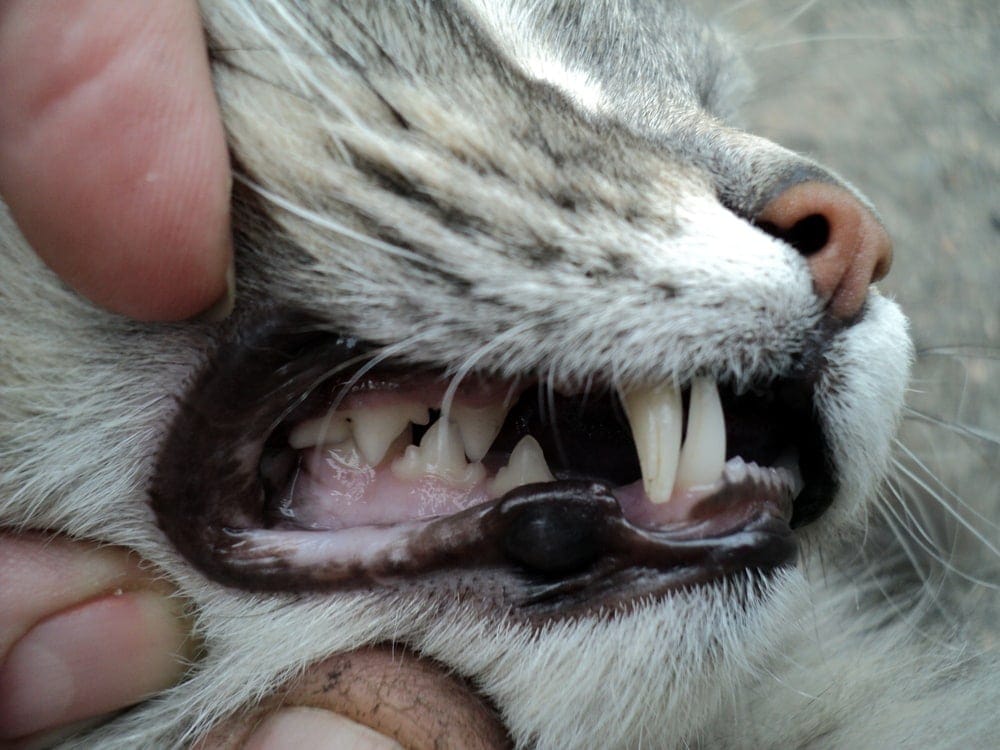While purring is perfectly normal behavior for cats, not all of them do this.
There are numerous explanations for why a cat might not vocalize in this particular way. This article will help you understand your cat’s behavior a whole lot better.
Purring in Cats
The purring sound that most cats emit can mean lots of different things. It might mean that they are comfortable, angry, or even stressed out. Some animal behaviorists speculate that these animals may purr if they are sick or injured.
Young kittens often purr quite a bit before they start opening their eyes. This is because they rely heavily on vibrations to sense their immediate environment. It kind of serves as a sort of echolocation, but not really. The average cat purrs at a frequency of 25-150 vibrations per second.
Cats often purr when they are feeling good, such as when they’re curled up in their owner’s lap. This is because just them letting you know that they are nice and comfy (so you better not move them.)
Even a lot of wildcats are known to purr at least sometimes, including the puma, cheetah, lynx, and bobcat. This is a type of vocalization that has been observed in lots of different kinds of cats all over the world. It is an instinct and ability most cats have that goes back many years, well before domestication.
These animals also purr as a way of communicating and socializing with others of their own kind. Those who have two or more cats in the same household often observe this behavior, as it is quite common.
Some Cats Just Don’t Purr
The simple fact of the matter is that some cats just don’t purr. There is no obvious or definitive explanation for this, so it’s a bit of mystery. There are some cats that make certain vocalizations, while others do not.
There are definitely certain cat breeds that are more likely to purr and vocalize than others. Some of these breeds include the Siamese cat, Sphynx, Ocicat, and Burmese cat. All of these breeds are very likely to purr, meow and make all sorts of other noises.
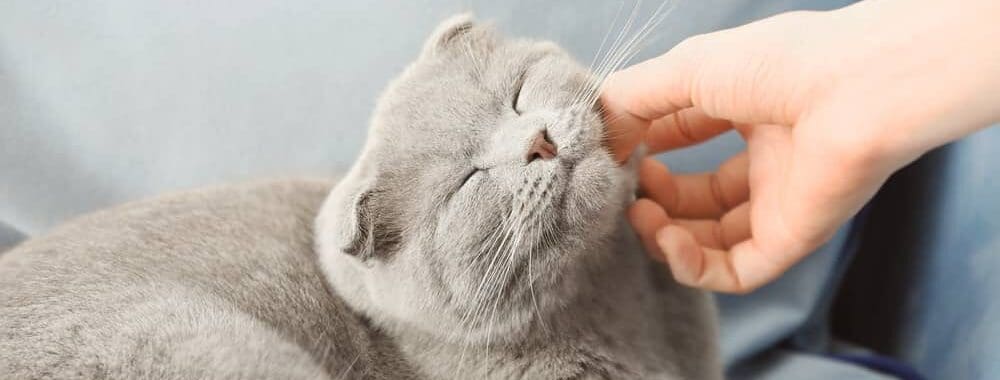
It Might Indicate a Mental Health Problem
Not purring is normal for many cats, but it can also be an indication that something is wrong with their mental health. This sometimes happens with cats that experience a lot of stress for one reason or another.
The most common source of stress for cats is a sudden change in their routine. This can cause a lot of anxiety for these animals. They don’t take kindly to having their environment changed in any major way.
If you aren’t spending enough time with your cat on a daily basis, they might stop purring all of a sudden.
Benefits of Purring
Cats that purr can actually benefit from making this sound in a number of ways.
- Better heart health: There is some research data that suggests that purring cats are less likely to develop heart disease as they get older.
- It relieves stress: Purring can definitely help with relieving the stress that your kitty may be experiencing.
- Faster healing: Believe it or not, purring can have a positive effect on a cat’s ability to heal itself. The particular wavelength of this sound can heal their bones, tendons, ligaments, and muscles a bit faster.
How to Get Your Cat to Purr
You can try a number of different things to get your cat to purr. While not all of these methods are going to work, they are still worth trying.
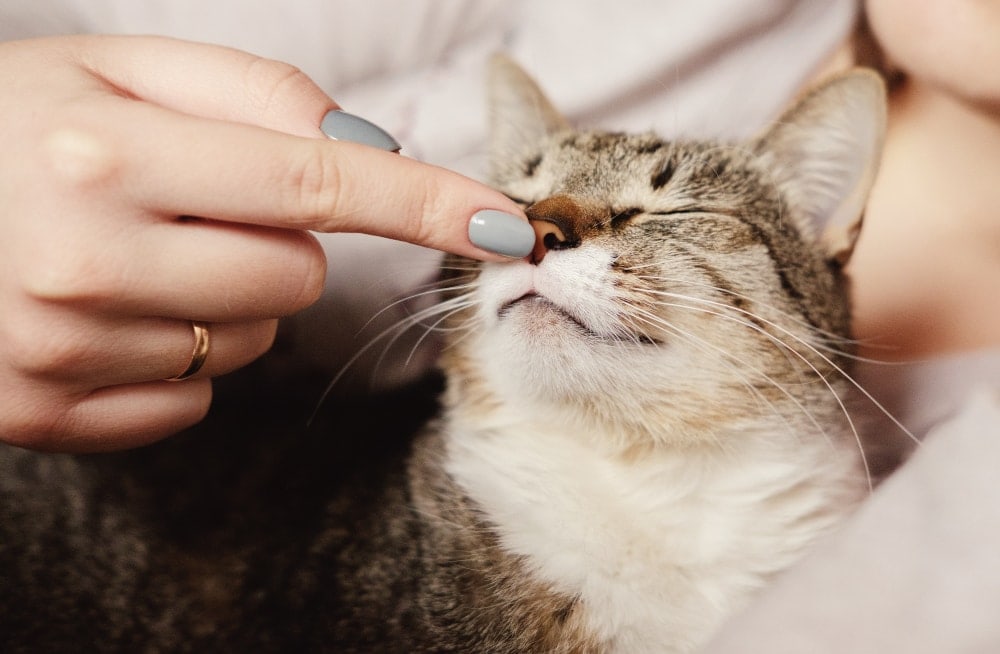
1. Pet Them in Just the Right Place
Most cats have certain areas of their body that really respond to being petted. If you find this spot on your cat, you might just get them to purr a little. This is kind of how when you pet a certain area on a dog, one of their legs starts kicking. It might take a little while to find this spot, but there is a good chance it will work.
2. Snuggle With Them
Sometimes just holding your cat close but gently can induce purring. If your kitty gets really comfortable, they might let out a sound that is at least something close to this vocalization.
3. Talk to Them Softly
Talking or even swinging to your cat in a soft and gentle tone could also possibly get them to purr. This might relax them to the point where they let out of a purr without even meaning to. It will definitely help if you have a nice singing voice!
Should I Take My Cat to the Vet?
Your cat not purring isn’t a valid reason to take them to the vet. They will most likely just tell you that some cats do not purr, and it’s not quite as uncommon as you might think. If you notice them being completely quiet, something might be wrong.
Any change in your cat’s behavior is worth having them looked at. This means that if your cat usually purrs but hasn’t for a while, you should be concerned. There are lots of possible reasons for this, so you don’t want to jump to any conclusions.
Conclusion
- Purring is a vocalization that has been observed in all different types of cats, including bobcats, lynx, and even cheetahs.
- This particular vocalization serves a number of purposes, including socialization with other cats.
- It is believed that a cat’s purring can actually speed up their physical healing.
- The fact is that there are certain types of cats that just don’t purr.
- Some cat breeds are more likely than others to purr, including Siamese and Burmese cats.
- You may be able to get your cat to purr by finding that perfect spot on their face or body to pet.
- If your cat usually purrs but stops for more than a day out of nowhere, you should take them to the vet to get looked at.
- Singing or talking to your cat softly while they are curled up in your lap might also get them to purr.
